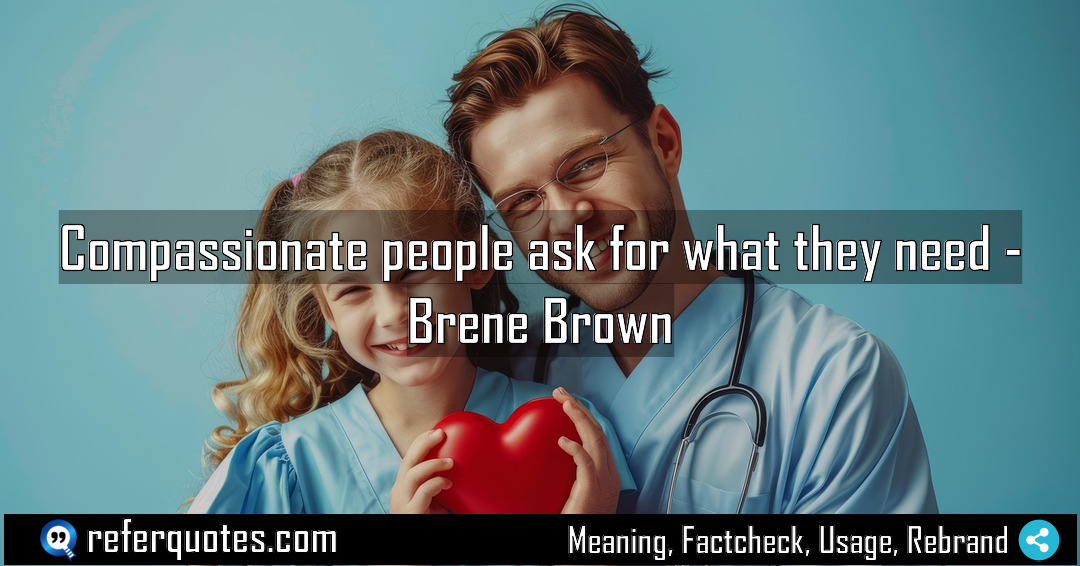Compassionate people ask for what they need. It sounds simple, but it’s a game-changer. This idea flips the script on what we think strength really is.
Share Image Quote:Table of Contents
Meaning
At its core, this quote means that true compassion isn’t just about giving to others; it’s about having the courage to be clear about your own needs. It redefines strength not as silent endurance, but as vulnerable clarity.
Explanation
Here’s the real kicker that most people miss. We often think of compassion as a one-way street—something we extend outward. But Brené’s research uncovered something profound. The most genuinely compassionate people have strong boundaries. They don’t burn themselves out. How? Because they understand that stating a need is an act of respect—for themselves and for the other person. It prevents the resentment that builds when we expect people to read our minds. It’s not selfish. It’s sustainable. It’s the foundation of any real, healthy relationship, whether at work or at home.
Quote Summary
| Context | Attributes |
|---|---|
| Original Language | English (3668) |
| Category | Wisdom (385) |
| Topics | compassion (36), needs (26) |
| Literary Style | didactic (370) |
| Emotion / Mood | lively (108) |
| Overall Quote Score | 71 (53) |
Origin & Factcheck
This is straight from Brené Brown’s 2010 book, The Gifts of Imperfection, which came out in the United States. You might see similar sentiments floating around, but this specific, powerful phrasing is hers, born from decades of research on vulnerability and wholehearted living.
Attribution Summary
| Context | Attributes |
|---|---|
| Author | Brene Brown (257) |
| Source Type | Book (4032) |
| Source/Book Name | The Gifts of Imperfection (46) |
| Origin Timeperiod | 21st Century (1892) |
| Original Language | English (3668) |
| Authenticity | Verified (4032) |
Author Bio
Dr Brene Brown is the author of books such as Daring Greatly and The Power of Vulnerability. The TED talk and Netflix production based on her research reached out to millions of audience. She researches effects of courage and vulnerability in shaping people's work and relationships. She leads the Brené Brown Education and Research Group and provides evidence-based insights into practical tools to help people train themselves
Official Website |Facebook | X | Instagram | YouTube |
Where is this quotation located?
| Quotation | Compassionate people ask for what they need |
| Book Details | Publication Year/Date: 2010; ISBN/Unique Identifier: 9781592858491; Last edition. Number of pages. |
| Where is it? | Approximate page from 2010 Hazelden edition |
